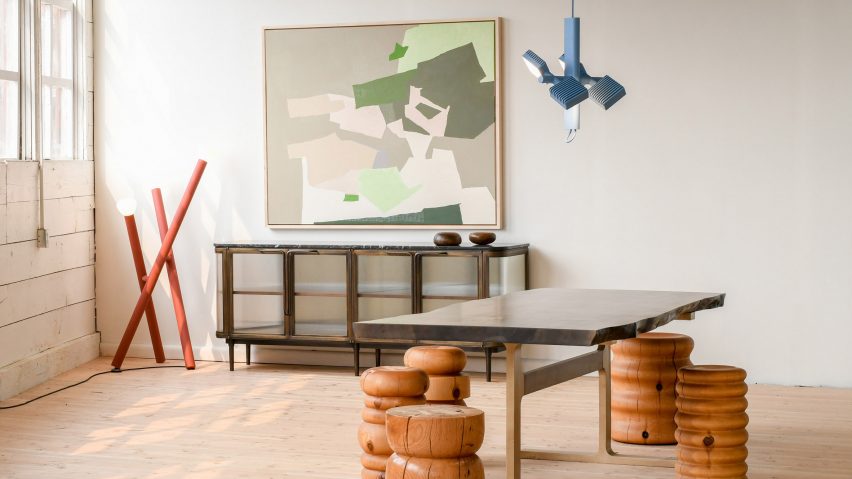
Alpenglow Projects' first exhibition features cactus lamps and pendants molded on river stones
Pendant lights sculpted from pebble stones and bronze bowls cast from objects found on hikes are among the pieces on show at Alpenglow Projects gallery in Vancouver.
The gallery, founded by designer and sculptor Jeff Martin, focuses on pieces with a strong connection to materiality and showcases work by local North American designers and artists.
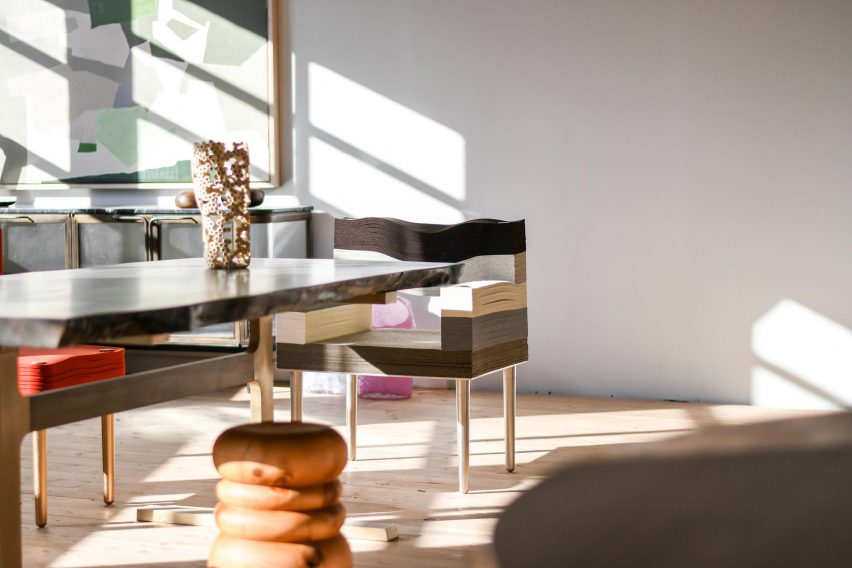
"All of the designers were selected based on their holistic approach to design, and my relationship I have built with each of them over the past decade," Martin told Dezeen.
The 16 designers in the show are also on the official roster of representation by Alpenglow Projects.
Among the pieces are Canadian designer Lukas Peet's lighting design Pebble, which is made from glass but resembles the sleek, polished stones you can find in riverbeds.
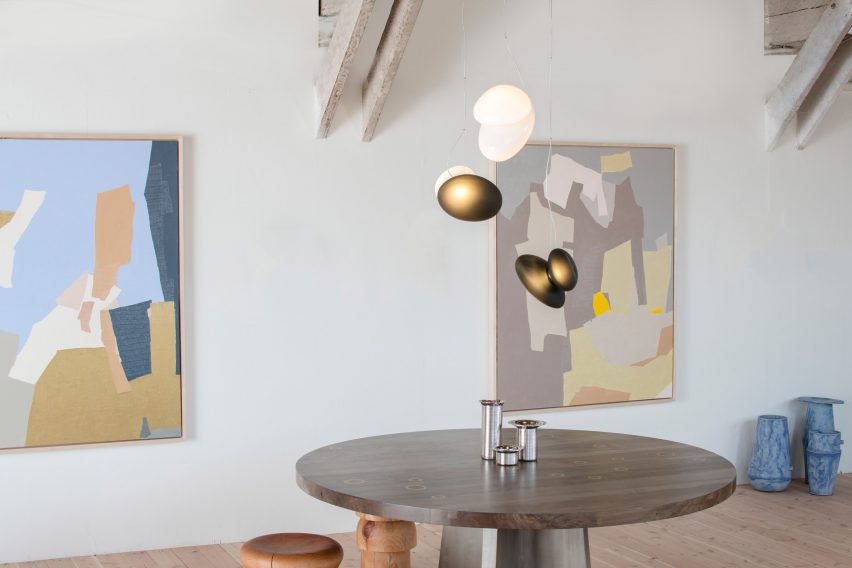
"You can see that specifically through this series, in which he has collected actual river stones on one of his hikes to use as molds for the production of his pendants," Martin said.
"The rest of the fixtures are rigorously engineered, but the idea is simple and informed by natural sciences."
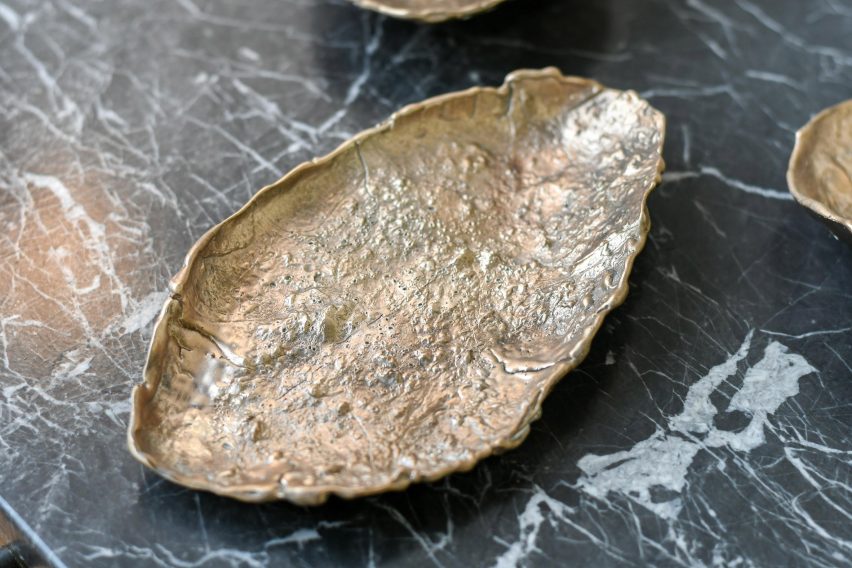
The idea of being inspired by or working in close connection to nature comes through in other designs as well, including Henry Norris' Borrowed Forms.
"These bronze bowls are cast objects he makes while he goes hunting, hiking, or mushroom foraging," Martin explained. "Be it a charred briquette from the fire, or a large igneous rock he is drawn to at a Hot Springs.
"Henry will pull out a small stove, his saucepan and jewellers wax to take a direct negative of the piece which he will bring back to translate into bronze," he added. "They are minimally interventionist and beautiful from concept through to finished object."
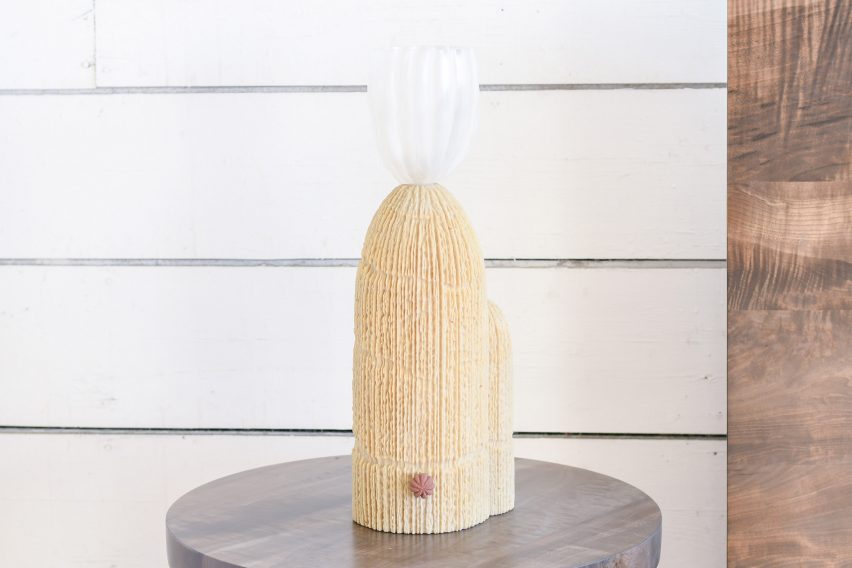
Ridged sides and flower-shaped glass details decorate Steven Haulenbeek's cactus lamps, made from resin-bonded sand the designer collects from a sand-casting facility.
"Steve has invented a method for reconstituting sand into tamped and compressed forms, like stones, and carving them by hand," Martin said.
"He then lacquers the pieces in resin, to plasticise and bond the sand into a non-fragile whole and he sandblasts the rest of the work away to reveal the final form. His lamps are imagined cacti, complete with Peyote button dimming knobs."
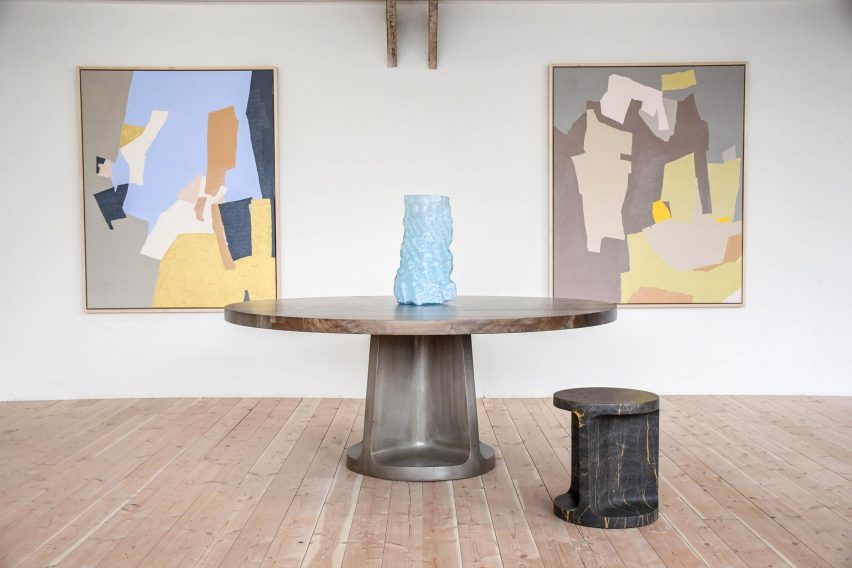
Opening the gallery – which is located in a wing off his company's production facility – during the coronavirus pandemic has been "incredibly easy," said Martin, who envisions the gallery as a way to help artists and designers.
"As some design fairs have slowly been losing steam or relevance over the years, and have increased in cost to the designer wanting to market their work there, I wanted to provide a solution to people to help alleviate the pressure of attending or exhibiting at these events," he said.
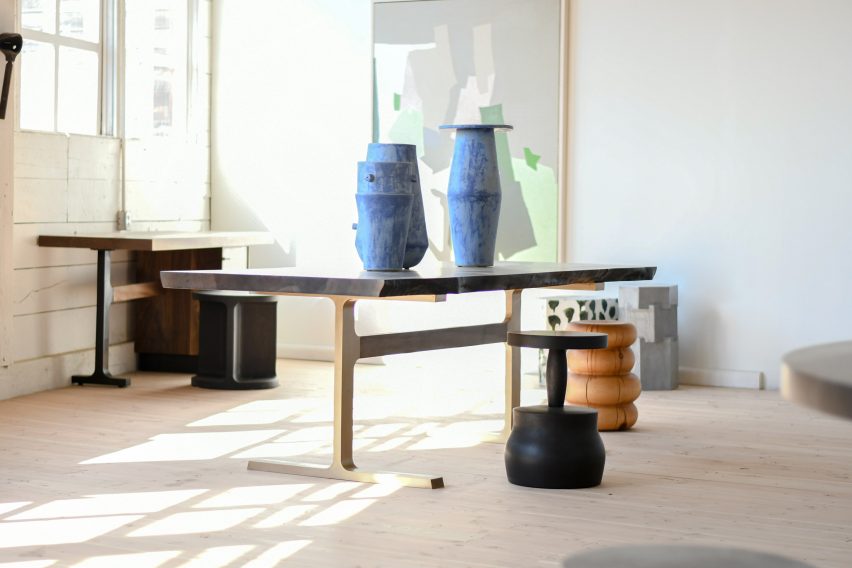
Martin is interested in ontology, the philosophical study of being, and added: "The type of designers who we represent are those who carry that same fervent curiosity."
The Alpenglow Projects will continue to mount shows throughout this year and next, and plans to also open a production area where artists will be able to come and do residencies.
Other recent exhibitions that take a closer look at materiality include the Ukurant Objects show at Copenhagen's 3 Days of Design and the Homemade exhibition showing prototype designs made during lockdown.